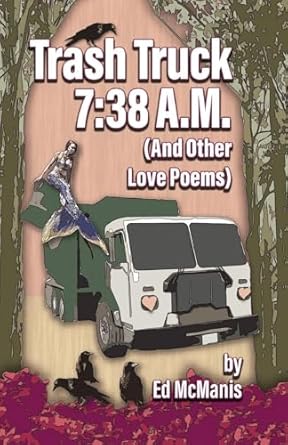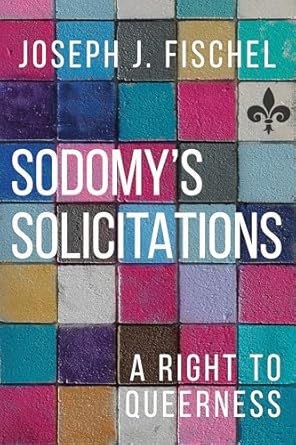 There aren’t many love poetry books written to celebrate the mundane. In his new chapbook, Ed McManis writes a series of odes to mature, long-lasting love, exploring the nature of ongoing compromise, of the joy of co-existing with difference and dissent, of lost dreams and the ongoing anxieties of parenting, aging, and loss.
There aren’t many love poetry books written to celebrate the mundane. In his new chapbook, Ed McManis writes a series of odes to mature, long-lasting love, exploring the nature of ongoing compromise, of the joy of co-existing with difference and dissent, of lost dreams and the ongoing anxieties of parenting, aging, and loss.
Author:
A review of Poems Talking to Poems edited by Jeffrey Levine and Kristina Marie Darling
 Levine takes gems from his blogs and workshop material to create the frame for the book. “The Poetry Manuscript: Arts and Crafts” serves as an introduction to the granular exploration of what he calls “the art of transforming individual poems into a transcendent whole.” Every chapter Levine contributes requires poets to dive deeper into creative self-awareness.
Levine takes gems from his blogs and workshop material to create the frame for the book. “The Poetry Manuscript: Arts and Crafts” serves as an introduction to the granular exploration of what he calls “the art of transforming individual poems into a transcendent whole.” Every chapter Levine contributes requires poets to dive deeper into creative self-awareness.
An interview with by Sahar Swidan and Matthew Bennett
 The authors of Mastering Chronic Pain talk about their new book and why they wrote it, the importance of empowering readers, biggest misconceptions about pian, how they began collaborating and what makes for a succesful collaboration, what’s in the pipeline and more.
The authors of Mastering Chronic Pain talk about their new book and why they wrote it, the importance of empowering readers, biggest misconceptions about pian, how they began collaborating and what makes for a succesful collaboration, what’s in the pipeline and more.
New giveaway!
We have a copy of A Shapeshifter in Love – Marie de France’s Yonec and Gabrielle-Suzanne de Villeneuve’s the Beauty and the Beast, Parts One and Two translated by Katharine Margot Toohey to give away!
To win, sign up for our Free Newsletter on the right-hand side of the site and enter via the newsletter. Winner will be chosen by the end of December from subscribers who enter via the newsletter. Good luck!
A review of Aleph Bet by Sue Rose
 But the main event is Rose’s wonderful poetry. Each of the poems is one long stanza, meditations on the meaning and appearance of each letter. In her Notes at the end of the sequence, Rose provides fascinating information about the background of each letter, including the numerical value of each, which ranges from 1for the aleph (א) to 400 for the tav (ת). The numerical values of the letters are key to gematria, Jewish numerology.
But the main event is Rose’s wonderful poetry. Each of the poems is one long stanza, meditations on the meaning and appearance of each letter. In her Notes at the end of the sequence, Rose provides fascinating information about the background of each letter, including the numerical value of each, which ranges from 1for the aleph (א) to 400 for the tav (ת). The numerical values of the letters are key to gematria, Jewish numerology.
Creative Imagination: Unruly Tree and Self-Portrait as Vanishing Act by Leslie Ullman
 Striking for their sharp focus and mesmerizing for their rich vocabulary, these collections transport readers to imagined realms that are also vividly real. It has been a productive year for this acclaimed poet and writing teacher, who released two new poetry collections within eight months of each other.
Striking for their sharp focus and mesmerizing for their rich vocabulary, these collections transport readers to imagined realms that are also vividly real. It has been a productive year for this acclaimed poet and writing teacher, who released two new poetry collections within eight months of each other.
A review of The Old Man by the Sea by Domenico Starnone
 If identity is to be found in reviewing “key moments” in life and not be trapped by “sentimental life . . . so full of hiding places,” then Starnone’s novel must be read like a detective novel that travels in time and space, all from the comfort of a beach chair in which an old man sits by the sea, waiting to catch the fish of a lifetime, gold and shimmering, one filled with promise and food for a tired soul.
If identity is to be found in reviewing “key moments” in life and not be trapped by “sentimental life . . . so full of hiding places,” then Starnone’s novel must be read like a detective novel that travels in time and space, all from the comfort of a beach chair in which an old man sits by the sea, waiting to catch the fish of a lifetime, gold and shimmering, one filled with promise and food for a tired soul.
A review of Split Daughter of Eve by Catherine Gonick
 Breaking open a double heritage, Christian and Jewish, Catherine Gonick creates a paradise where three sisters—the speaker, the younger sister, and the little sister—are all portrayed as daughters of Eve. Her full-length collection, Split Daughter of Eve, takes us on a deep dive where we find the speaker changing shape, changing perception, and even trying to reverse loss.
Breaking open a double heritage, Christian and Jewish, Catherine Gonick creates a paradise where three sisters—the speaker, the younger sister, and the little sister—are all portrayed as daughters of Eve. Her full-length collection, Split Daughter of Eve, takes us on a deep dive where we find the speaker changing shape, changing perception, and even trying to reverse loss.
A review of How to Write a Novel edited by Aaron Burch
 The beauty of How to Write a Novel is two-fold. First, all of its readers will walk away having learned something about writing, even if they don’t mean to. Second, its readers will walk away wanting to write and revise something, which is the mark of a good teacher, good workshop, good craft book. Editor Aaron Burch and his friends challenge readers to consider their own hobbies and how the principles behind them relate to writing. After closing the book, I wondered, what does writing have in common with volleyball? Or Pokémon? Or singing? Or video editing? I knew I had to write in order to find out.
The beauty of How to Write a Novel is two-fold. First, all of its readers will walk away having learned something about writing, even if they don’t mean to. Second, its readers will walk away wanting to write and revise something, which is the mark of a good teacher, good workshop, good craft book. Editor Aaron Burch and his friends challenge readers to consider their own hobbies and how the principles behind them relate to writing. After closing the book, I wondered, what does writing have in common with volleyball? Or Pokémon? Or singing? Or video editing? I knew I had to write in order to find out.
A review of Sodomy’s Solicitations by Joseph J. Fischel
 The book is erudite, playful at times, and well-argued. But whether these two relatively straight-forward propositions require so much theorizing and intricate prose is debatable, at least outside the groves of academe, where the author writes from a perch at Yale. One can imagine functionaries in the current White House looking at this book and immediately barking out orders to cut federal funding for New Haven.
The book is erudite, playful at times, and well-argued. But whether these two relatively straight-forward propositions require so much theorizing and intricate prose is debatable, at least outside the groves of academe, where the author writes from a perch at Yale. One can imagine functionaries in the current White House looking at this book and immediately barking out orders to cut federal funding for New Haven.